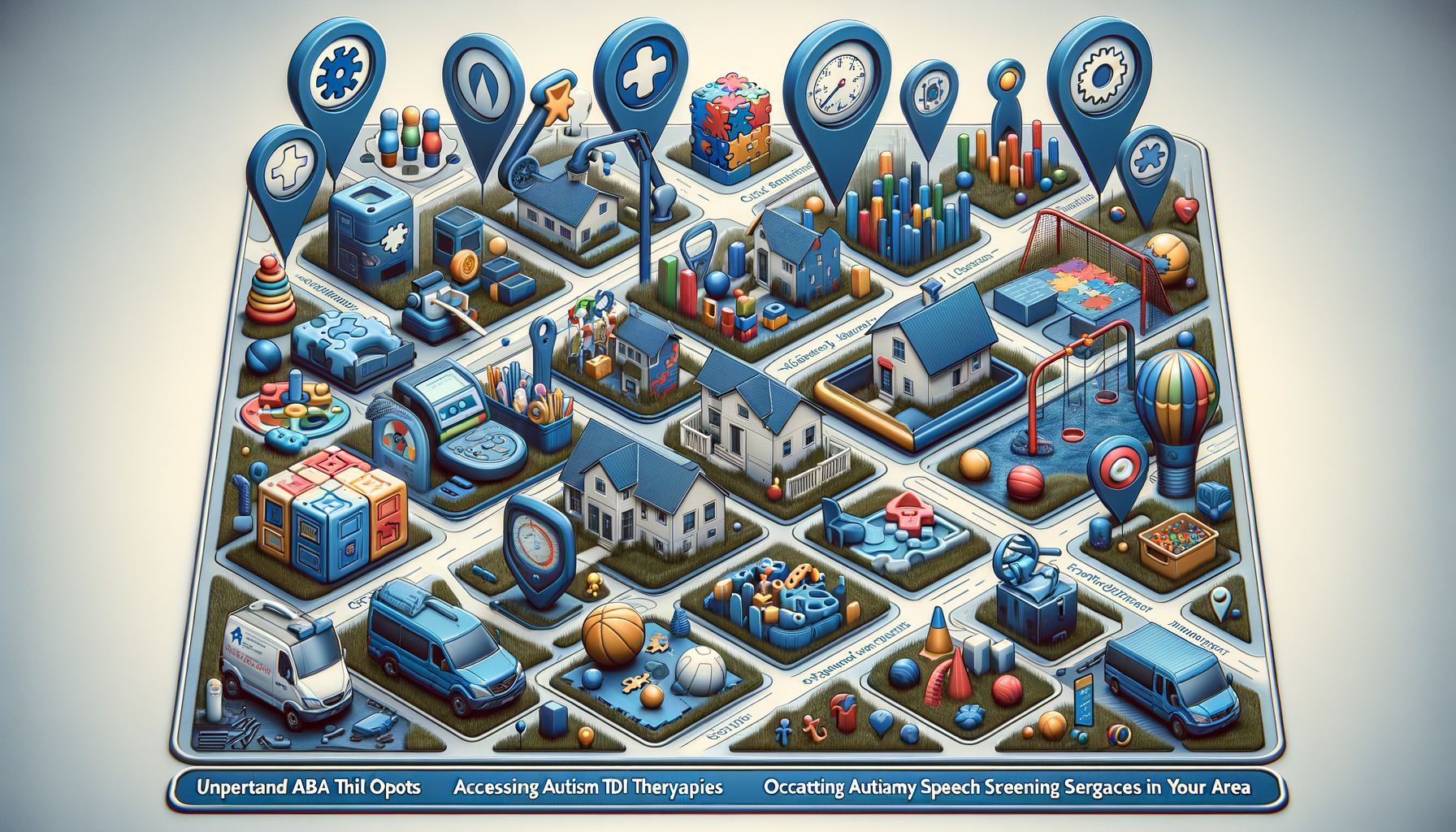
Explore Autism Therapy and Support Services For Your Child in Your Area
Understanding ABA and RDI Therapy Options
Autism Spectrum Disorder (ASD) affects individuals differently, and the journey to finding the right therapy can be unique for each person. Two prevalent therapy options are Applied Behavior Analysis (ABA) and Relationship Development Intervention (RDI). ABA therapy is a structured approach that focuses on improving specific behaviors such as social skills, communication, and learning through reinforcement strategies. It is often used in educational settings and has a strong evidence base supporting its effectiveness in enhancing adaptive behaviors.
On the other hand, RDI therapy emphasizes building emotional and social connections. It is a family-centered approach that aims to improve the quality of life by fostering dynamic thinking and problem-solving skills. RDI encourages parents to be active participants in their child’s development, creating a supportive environment for growth.
Choosing between ABA and RDI can depend on various factors, including the child’s specific needs, family preferences, and available resources. Both therapies offer unique benefits, and in some cases, a combination of both may be beneficial. Consulting with professionals who specialize in autism can provide guidance tailored to your child’s needs.
Accessing Occupational, Speech, and Play Therapies
Occupational, speech, and play therapies are integral parts of a comprehensive approach to supporting individuals with autism. Occupational therapy (OT) focuses on improving daily living skills and sensory integration, aiding children in becoming more independent. OT can help manage sensory sensitivities, improve fine motor skills, and enhance the ability to perform daily tasks.
Speech therapy is crucial for individuals with communication difficulties. It can assist in developing verbal and non-verbal communication skills, enhancing the ability to express needs and interact with others. Speech therapists work on articulation, language development, and social communication skills.
Play therapy, often overlooked, is a powerful tool for children with autism. It utilizes play to help children express themselves, develop social skills, and improve emotional regulation. Through guided play sessions, therapists can address behavioral issues and help children learn to interact with peers in a structured manner.
Accessing these therapies can often be facilitated through schools, private clinics, or community programs. It is essential to explore all available options and consider factors such as insurance coverage, availability of qualified practitioners, and the specific needs of your child.
Navigating Autism Testing, Screening, and Support Programs
Early diagnosis and intervention are key to supporting individuals with autism. Autism testing and screening programs are designed to identify signs of ASD as early as possible. These programs typically involve a combination of parent interviews, developmental screenings, and behavioral observations by healthcare professionals.
Once a diagnosis is made, accessing support programs becomes crucial. These programs can include educational support, therapy services, and family counseling. Many communities offer specialized programs tailored to the needs of individuals with autism, providing resources and support for families navigating this journey.
Understanding the local resources available can greatly impact the support received. Schools often have special education programs designed to accommodate children with autism, providing individualized education plans (IEPs) and access to specialized staff. Additionally, community organizations may offer support groups, workshops, and advocacy services to assist families.
It is important for parents and caregivers to be proactive in seeking out these resources and advocating for their child’s needs. Building a network of support can make a significant difference in the quality of life for individuals with autism and their families.
Comparing Therapy Options: What Works for Your Child
Choosing the right therapy for a child with autism can be a daunting task. With various options available, understanding the differences and potential benefits of each is crucial. ABA, RDI, occupational, speech, and play therapies each offer unique approaches and advantages.
ABA is highly structured, focusing on measurable improvements in behavior. It is data-driven and often involves intensive sessions. RDI, in contrast, emphasizes emotional and social growth, involving parents as co-therapists in the process.
Occupational and speech therapies address specific developmental areas, such as motor skills and communication, providing targeted support. Play therapy offers a less formal approach, using play as a medium to teach and engage children.
Ultimately, the choice of therapy should be based on the child’s needs, family goals, and available resources. Consulting with professionals and other parents can provide insights and help make informed decisions. It’s also important to remain flexible and open to adjusting strategies as the child grows and their needs evolve.
Creating a Supportive Environment at Home
While professional therapies are essential, creating a supportive environment at home is equally important. Parents and caregivers play a crucial role in reinforcing skills learned in therapy and providing a nurturing space for growth.
Consistency is key. Establishing routines and clear expectations can help children with autism feel secure and understand what is expected of them. Visual schedules, social stories, and positive reinforcement can be effective tools in managing daily activities.
Engaging in activities that align with the child’s interests can also foster development. Whether it’s through art, music, or physical activities, finding ways to connect and engage with the child can enhance their learning and emotional well-being.
Additionally, seeking support from other families and professionals can provide valuable insights and encouragement. Sharing experiences and learning from others can help navigate the challenges and celebrate the successes that come with raising a child with autism.

